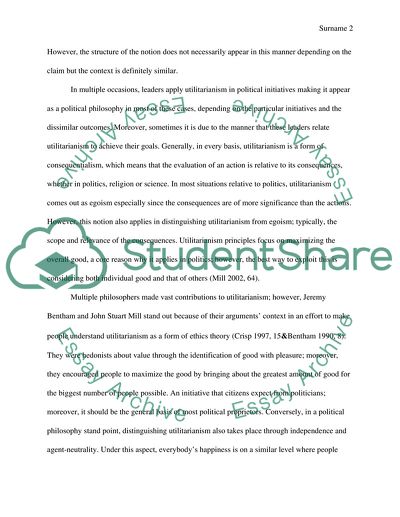Cite this document
(“Utilitarianism is not so much a political philosophy, as a political Essay”, n.d.)
Retrieved from https://studentshare.org/social-science/1673592-utilitarianism-is-not-so-much-a-political-philosophy-as-a-political-technique-discuss
Retrieved from https://studentshare.org/social-science/1673592-utilitarianism-is-not-so-much-a-political-philosophy-as-a-political-technique-discuss
(Utilitarianism Is Not so Much a Political Philosophy, As a Political Essay)
https://studentshare.org/social-science/1673592-utilitarianism-is-not-so-much-a-political-philosophy-as-a-political-technique-discuss.
https://studentshare.org/social-science/1673592-utilitarianism-is-not-so-much-a-political-philosophy-as-a-political-technique-discuss.
“Utilitarianism Is Not so Much a Political Philosophy, As a Political Essay”, n.d. https://studentshare.org/social-science/1673592-utilitarianism-is-not-so-much-a-political-philosophy-as-a-political-technique-discuss.


